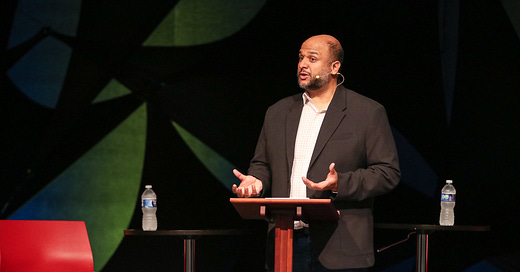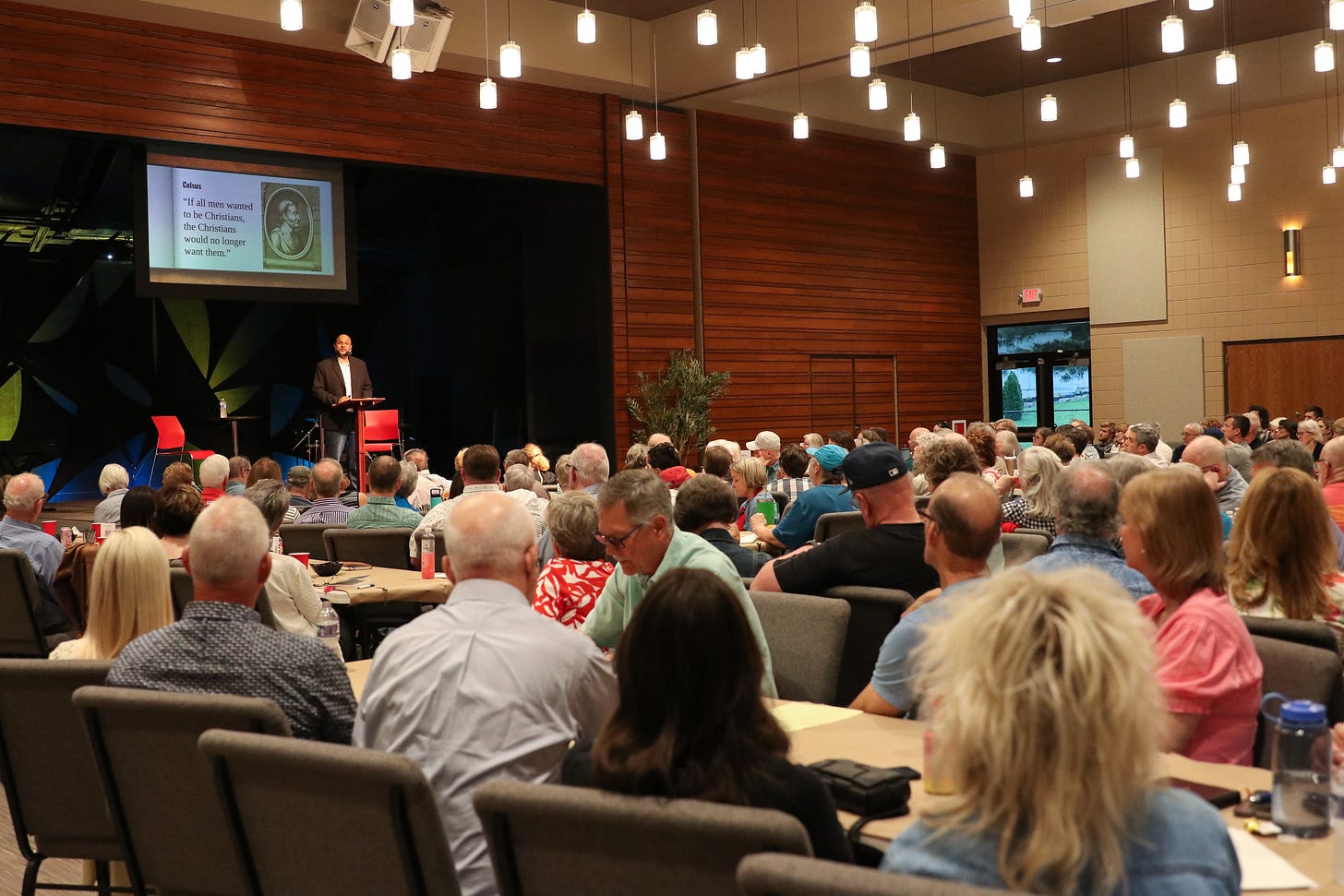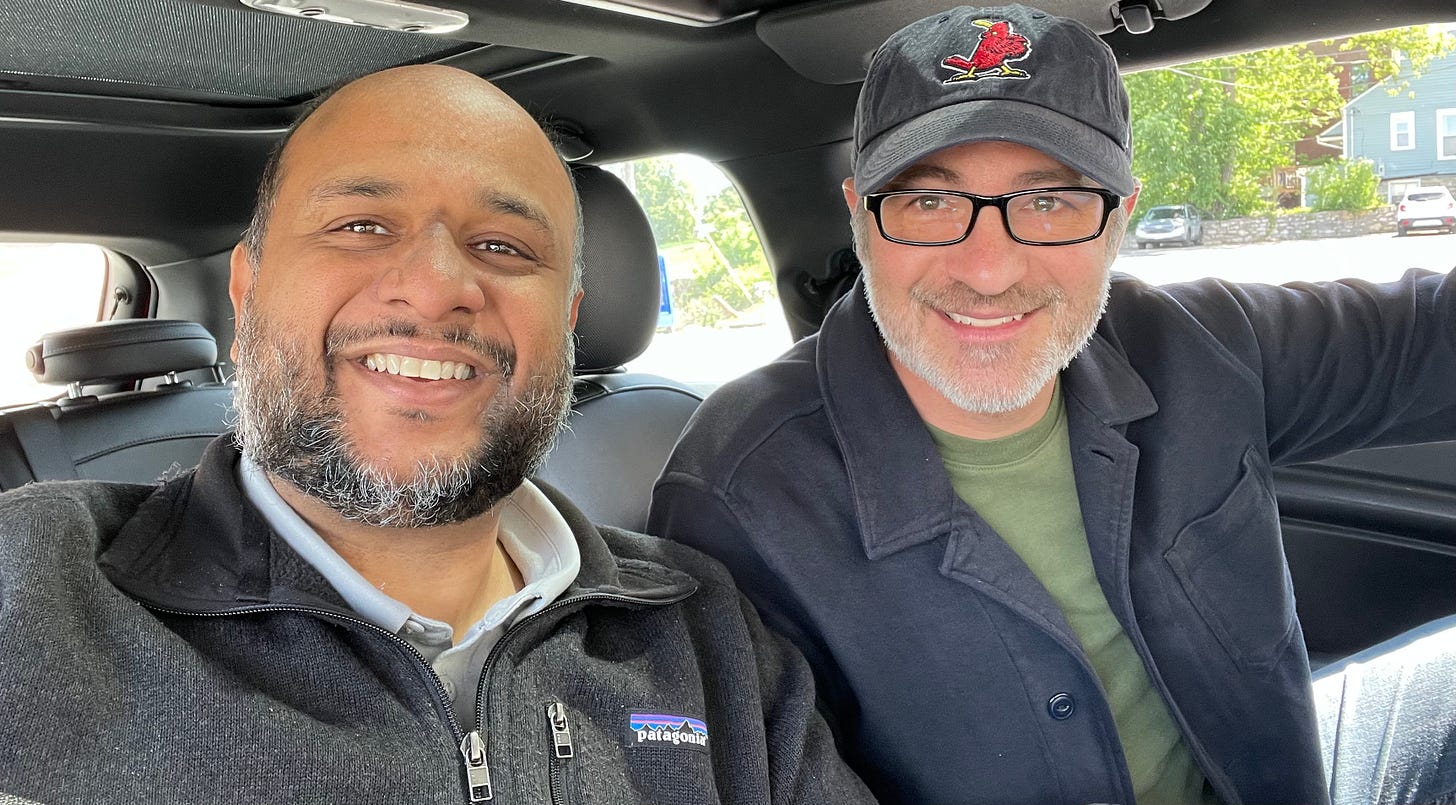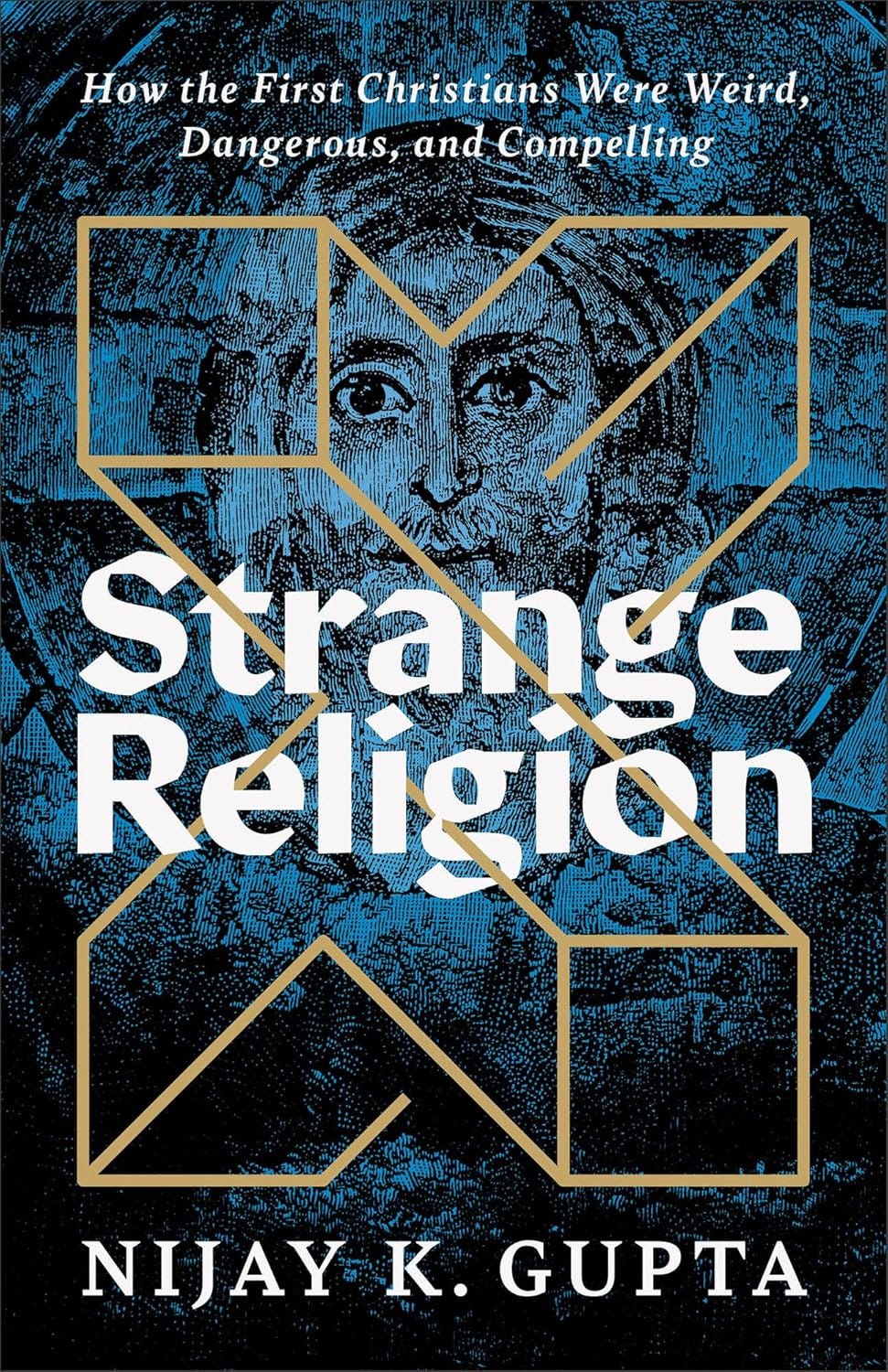Strange Religion—In Kansas City!
A Night to Remember with Christ Church Anglican (May 14, 2025)
I spent a wonderful couple of days in Kansas City, visiting Christ Church Anglican to talk about my book Strange Religion: How the First Christians Were Weird, Dangerous, and Compelling. There is a hunger I sense in Christians across America who are worried about conformity to cultural obsession with power, hatred, and elitism. The way of Jesus, on the other hand, is a strange way; we are often called to be cultural deviants. Christianity is not merely a philosophy—but we do have a moral philosophy (E.g., the Sermon on the Mount). Christianity is not merely an advocacy group, but we are passionate about justice and equality because Christ came, died, and rose to transform the world towards the righteousness it was always meant to reflect and contain. Christianity is not just a social club, but we are a loving family gathered around Christ the Son, interconnected by the Spirit, in praise of the Father. We seek first Christ’s kingdom and righteousness, and we believe everything else will fall into place as we pursue Christ.
I am deeply thankful to my host, Rev. Dr. Jason Veach. He oversees spiritual formation and theological education at his church, and I LOVE they bring in scholars and teachers to inspire, equip, train, and build up the whole church. It was amazing to see 200+ people gather to reflect on our spiritual ancestors from 2000 years ago and to dream about how we can follow in their footsteps in a tumultuous world today that desperately needs the hope, truth, wisdom, beauty, and justice of the gospel of Jesus.
Strange Religion is my second best-selling book (next to Tell Her Story), which is a testimony to a yearning in the American Church for change; the world needs a healthy church that is the body, the hands and feet, of Christ. Let’s make some good trouble, weirdos!
One of the priests at Christ Church, Amanda Goin-Burgess, wrote this reflection for her community after my “learning lab” evening lectures. It’s a great reflection of what I wanted to pass on to the church about the transformative love of God in Jesus Christ.
Love One Another
by Amanda Goin-Burgess, Pastor of Community Care
New Testament Professor, Nijay Gupta, was with us for our Learning Lab this week. Dr. Gupta presented the radical differences between the social ethics of early Christians and the hierarchy of Roman culture. He showed, rather strikingly, that rather than participating in the Roman system, Christians eliminated ranks in traditional categories like slave and master, Jew and Greek, or male and female (see Galatians 3:28). In Roman culture, people were valued for their elite status resulting from wealth and health. This was considered evidence of the god’s favor. Conversely, early Christians gave everything for the sake of Christ, valuing shared life together across societal barriers.
For early Romans, the only arena where competition was not present was in the context of family. For Christians, everyone was family; no one was elite. This was radical because slaves, masters, men, women, Jews, Greeks, and all other non-equal civic categories, had become family members in the household of God. In fact, the belief in human equality, the sanctity of every life, came from Christianity.
This brings me to Sunday’s Gospel reading: John 13:31-35. In verse 33, Jesus says, “My children, I will be with you only a little longer ...” Here we see an early glimpse of the new family Jesus brought forth; a kingdom that eliminated barriers to flourishing and called everyone sister or brother. Even as he tells his disciples the hard news that he would soon depart, he tells them with the compassion of a loving parent. From this compassionate posture, he gives them a command to help bring about the new family: “A new command I give you: Love one another. As I have loved you, so you must love one another.”
Finally, I am reminded of one other feature Dr. Gupta spoke about. Christians were known for their love; not the lusty or temporal love most were familiar with, but a sacrificial, unconditional agape love. In John 13, Jesus leaves both a consolation and a command received and adopted by these early Christians: a promise of love and an encouragement to do likewise.
Therefore, let us also love one another!









Bummer, wish I would’ve known you were speaking at Christ Church Anglican, I live right down the street! Your Strange Religion book actually helped me get the courage to check out some house churches in the KC area.